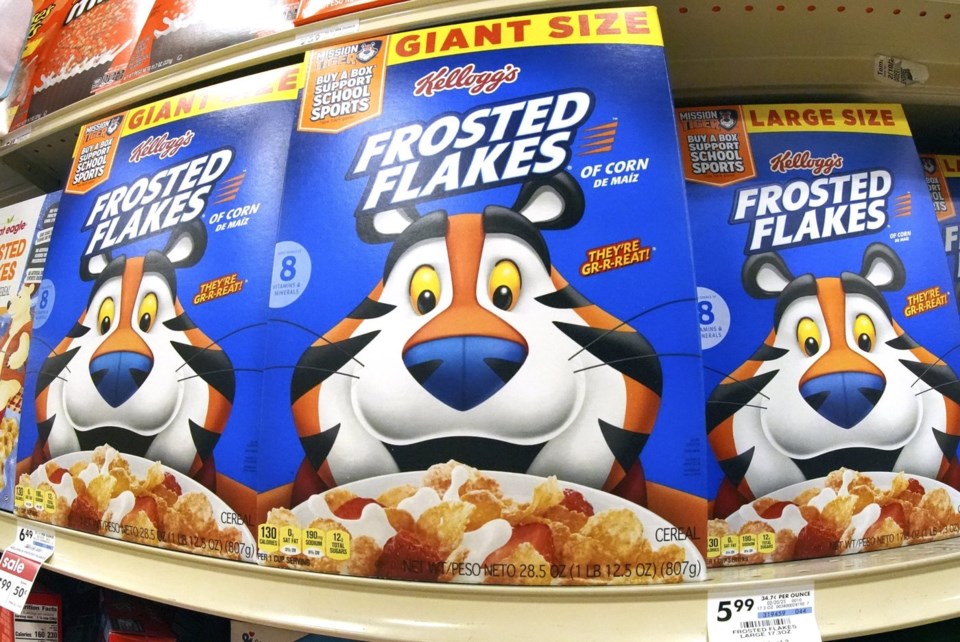Italian confectioner Ferrero, known for brands like Nutella and Kinder, is buying the century-old U.S. cereal company WK Kellogg in an effort to expand its North American sales.
The Ferrero Group said Thursday it will pay $23 for each Kellogg share, or approximately $3.1 billion. The transaction includes the manufacturing, marketing and distribution of WK Kellogg Co.’s portfolio of breakfast cereals across the United States, Canada and the Caribbean.
WK Kellogg's shares were up 31% in morning trading Thursday.
Kellogg was founded in Battle Creek, Michigan, in 1906 after its founder accidentally figured out how to make flaked cereal while he was experimenting with granola. Kellogg still makes Corn Flakes, as well as Froot Loops, Special K, Frosted Flakes, Rice Krispies and other cereals.
The current company was formed in 2023, when Kellogg's snack brands like Cheez-Its and Pringles were spun into a separate company called Kellanova. M&M's maker Mars Inc. announced last year that it planned to buy Kellanova in a deal worth nearly $30 billion.
Ferrero Group, which was founded in Italy in 1946, has been trying to expand its U.S. footprint. In 2018 it bought Nestle's U.S. candy brands, including Butterfinger, Nerds and SweeTarts. And in 2022 it bought Wells Enterprises, the maker of ice cream brands like Blue Bunny and Halo Top.
WK Kellogg's brands have been struggling with a long-term decline in U.S. cereal consumption as consumers turned to protein bars, shakes and other breakfast items. Cereal sales got a bump during the pandemic as more families stayed home, but sales continued to decline after the pandemic eased.
At the start of July, U.S. cold cereal sales were down 6% compared to the same period in 2022.
But Brad Haller, a senior partner for mergers and acquisitions at West Monroe, said Kellogg's large distribution network and relationship to grocers is appealing to Ferrero, since it will help Ferrero negotiate pricing and positioning for its products. The purchase also helps Ferraro expand beyond snacks and sweets and into a meal category, he said.
But Haller said Ferrero may look with a more critical eye on Kellogg's stable of brands and may wind up cutting brands or shutting down manufacturing plants.
“As Americans, these brands are iconic and beloved by us, but a European company buying these wouldn’t have the same nostalgia,” Haller said.
Kellogg has had other issues. A nearly three-month strike by workers at all its U.S. cereal plants in late 2021 hurt sales. And last fall, dozens of people rallied outside the company's Battle Creek headquarters demanding that Kellogg remove artificial dyes from its cereals. Earlier this year, Kellogg said it was reformulating cereals sold to schools to remove artificial dyes and will not include them in any new products starting in January.
Ferrero's acquisition, which still needs approval from Kellogg shareholders, is expected to close in the second half of the year. Once the transaction is complete, Kellogg’s stock will no longer trade on the New York Stock Exchange and the company will become a Ferrero subsidiary.
Dee-ann Durbin And Michelle Chapman, The Associated Press



